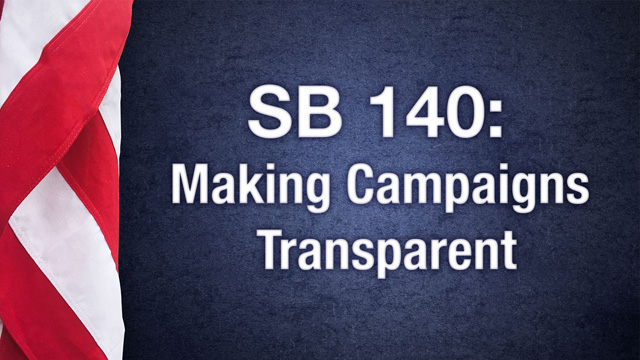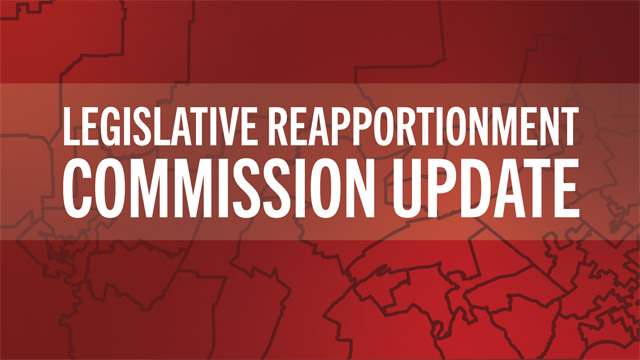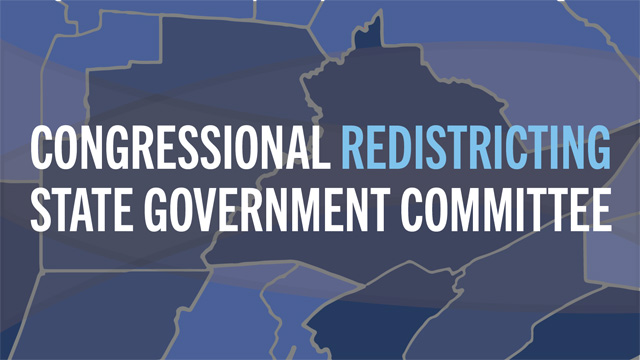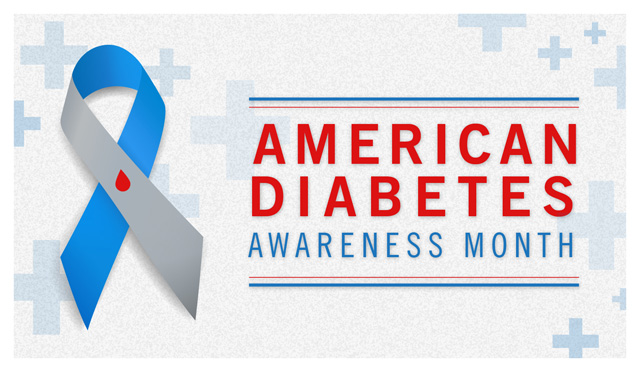
|
|||
|
In this Update:
OPIOID LITIGATION FUNDSSoon, I will be introducing legislation to ensure that opioid litigation funds are directed to address the opioid and overdose epidemic in Pennsylvania. In 1998, Pennsylvania and 45 other states entered into a Master Settlement Agreement with the tobacco industry. Pennsylvania was allotted an estimated $11 billion dollars to be disbursed in the first 25 years of the agreement to pay for the costs caused by lives lost due to tobacco. In 2001, the Tobacco Settlement Fund (TSF) was enacted in PA but neglected to include language ensuring that 100% of allocated funds from the TSF would go towards tobacco use prevention, cessation efforts, and combatting associated adverse health effects. As a result, funds from the TSF have gone towards other areas of the budget having nothing to do with addressing tobacco use or lung cancer. As Pennsylvania prepares to receive opioid-related litigation proceeds from civil lawsuits brought against opioid manufacturers, it’s important to ensure that 100% of these future funds go toward addressing the opioid and overdose epidemic and not towards political pet projects. This year’s fiscal code established the “Opioid Settlement Restricted Account” with little to no limits on how the funds could be allocated. I`m proposing legislation to ensure that any allocations from the the fund will be limited to substance use disorder prevention, treatment programs, recovery programs, harm reduction services, and resources for first responders. To ensure that funds are effectively distributed where they are needed most, my bill will also establish a volunteer 7-member voting commission who will provide recommendations on how opioid account funds are to be distributed. The Governor (1), Majority Leader of the Senate (1), Minority Leader of the Senate (1), Majority Leader of the House (1), Minority Leader of the House (1), and the County Commissioners Association of Pennsylvania (2) will have the opportunity to make appointments to the council. Qualifications for appointed members will need to include at least one of the following: Citizens who have experience in providing or receiving substance use disorder prevention, treatment, recovery, and harm reduction services Citizens who have expertise or experience in public health policy or research in the field of substance use Citizens who represent communities that have been disproportionately impacted by substance use First responders with experience in responding to overdose situations We must ensure that we get it right this time in determining how litigation funds can be most effective in helping people and the communities who need it the most. Establishing A Parental Bill of RightsIn the near future, I will be introducing legislation to enumerate the rights of parents and legal guardians to direct the upbringing, education, and health care of their child. Presently, Pennsylvania does not have a state statute that explicitly defines and protects parental rights as fundamental rights. 12 other states currently recognize these rights in statute. My legislation will make it clear in statute that the commonwealth or any of its political subdivisions may not infringe on the fundamental rights of a parent to direct the upbringing, education, health care, and mental health of his or her minor child without demonstrating that such action is reasonable and necessary to achieve a compelling state interest and such action is narrowly tailored and not otherwise served by a less restrictive means. The legislation will also codify a parent’s right to access and review all school records related to their child, a right to review all instructional materials used throughout the school year, and the right for parents to opt out their child from certain curriculum that the parent finds to be objectionable or harmful. Establishing a parental bill of rights will ensure that the rights of parents in our commonwealth are not swept aside by an overbearing bureaucracy. Op-Ed: Department of Health’s decision to withhold information continues troubling patternActing Health Secretary Alison Beam has found another “loophole” in the State’s Vital Statistics Law of 1953 in a calculated move to deny lawmakers full disclosure in reviewing the deaths of Pennsylvanians who died from COVID-19. The Legislative Budget and Finance Committee (LBFC), comprised of bipartisan state representatives and senators, requested the death certificates for those having COVID-19 listed on their death record. Acting Health Secretary Beam, in a letter dated Nov. 3rd to the LBFC denied the request under the confidentiality exception, stating the LBFC legislative body “Is not a ‘agency of the government’; its work is not in the conduct of official duty; and that its work studying and analyzing the reporting of death records is not research.” Instead, the LBFC was given a “highly redacted” report that only impairs any real attempts at providing accurate information. This penchant of concealing truth is par for the course with the Wolf Administration’s lack of transparency in wake of the disastrous March 18, 2020 directive by then Secretary Levine, requiring long-term care facilities to accept COVID positive residents after release from hospitals. This science denying decision led to the tragic and avoidable deaths of nearly 16,000 elderly and cherished family members in the Commonwealth. The administration failed to follow their own “follow the science” platitude, in the face of already knowing that individuals over the age of 70 and those with two or more comorbidities were at the greatest risk of severe illness and death. The governors of forty-five out of all the fifty states agreed that it was absurd to send sick COVID patients into the most vulnerable population. Yet Governor Wolf and four others (New York, New Jersey, Michigan, and California) recklessly rejected science-based germ theory and had their respective health secretaries issue guidance to send the sick back into long term facilities. After much legal wrangling between attorneys representing the LBFC and the Department of Health, a report was released revealing some information regarding demographics of those who perished. According to the data, no one under the age of 14 died from COVID-19. The majority who died from COVID-19 were in the age range of 85-89 (2,792) What was excluded in the report was information pertaining to COVID death certificates. This would allow the committee to examine accuracy of the reported numbers and other co-morbidities that may have contributed to the deaths as opposed to COVID alone. Pennsylvanians have not forgotten that Levine’s own 95 year old mom was in a facility, and the secretary, knowing the danger (but concealing it from the citizens of Pennsylvania) secretly smuggled her to the safety of a deluxe hotel suite, while “our” own loved ones were left to die. In the luxury and safety of this hotel, Levine freely visited mom, while our state’s citizens found them cut off from their loved ones, peering through windows and watching them die neglected and alone. Citizens who had lived good lives, veterans who had served their country with valor, were condemned to a lonely and isolated death. I am astounded that neither the Attorney General, nor the media cared enough to either launch or demand an investigation into the reckless, disastrous and science denying policies of Levine and Governor Wolf. We will continue to seek a full investigation into the handling of COVID-19 by the Wolf Administration and demand to know the truth for the families that lost loved ones. Those who destroyed thousands upon thousands of lives must be held accountable. Lane Restrictions Next Week on I-81 in Cumberland CountyContractor to trim trees along the interstate Harrisburg, PA – PennDOT announced today that a contractor is scheduled to trim trees next week along a section of Interstate 81 in Cumberland County. Weather permitting, work will be from 9:00 AM to 3:00 PM Monday, November 22, on northbound and southbound I-81 from Mile Marker 26 to Mile Marker 32. In the event of inclement weather, this work will be performed during the same hours on Tuesday, November 23. This mobile operation will require lane restrictions of up to 20 minutes so trees that could potentially fall on the interstate can be removed. Motorists should be alert and watch for stopped or slow-moving traffic. This work is part of a 12.3-mile resurfacing project on Interstate 81 from the Franklin County Line in Shippensburg Township to the Kutz Road bridge in Penn Township. This is project includes milling, resurfacing, base repairs, concrete patching, guiderail upgrades, pavement markings, and minor bridge work on I-81 in Southampton, Shippensburg, South Newton, and Penn townships. Work is expected to be completed by October 2022. New Enterprise Stone and Lime Company, Inc., is the prime contractor on this $26.48 million project. Motorists can check conditions on major roadways by visiting www.511PA.com. 511PA, which is free and available 24 hours a day, provides traffic delay warnings, weather forecasts, traffic speed information and access to more than 1,000 traffic cameras. 511PA is also available through a smartphone application for iPhone and Android devices, by calling 5-1-1, or by following regional Twitter alerts accessible on the 511PA website. Subscribe to PennDOT news and traffic alerts in Adams, Cumberland, Dauphin, Franklin, Lancaster, Lebanon, Perry and York counties at www.penndot.gov/District8. Information about infrastructure in District 8, including completed work and significant projects, is available at www.penndot.gov/D8Results. Find PennDOT’s planned and active construction projects at www.projects.penndot.gov. Follow PennDOT on Twitter at www.twitter.com/PennDOTNews and like the department on Facebook at www.facebook.com/PennsylvaniaDepartmentofTransportation and Instagram at https://www.instagram.com/pennsylvaniadot/. Court Ruling Could End School Mask Mandate Dec. 4
A Commonwealth Court ruling has paved the way for Governor Wolf’s school mask mandate to potentially end Dec. 4. If the Wolf Administration and the courts take no further action, the mandate will no longer be in place after that date. Commonwealth Court Judge Christine Fizzano Cannon’s ruling comes a week after her court threw out the statewide mask mandate. The mandate stayed in effect because the administration appealed the ruling to the state Supreme Court. Governor Wolf has said the order will be lifted Jan. 17. The court ruled Nov. 10 that the administration improperly used a law from 1955 to override parents and local school boards and impose a statewide masking mandate on students. Senate Acts to Increase Campaign Finance Transparency
All candidates for office and political action committees in Pennsylvania would be required to file campaign finance reports online under legislation recently approved by the Senate. Senate Bill 140 would require all candidates for office and political action committees in Pennsylvania to electronically file their campaign finance reports using the Department of State’s online filing system. Currently, candidates and committees have the option of filing their campaign finance reports through paper submission, which aren’t visible online until uploaded by staff. Citizens wishing to view the reports in a timely manner have to travel to Harrisburg or pay for copies to be sent by mail. The bill also increases penalties for late filings. Senate Bill 140 now moves to the House of Representatives for its consideration. Update on the Legislative Reapportionment Commission
The Legislative Reapportionment Commission held its latest public hearing this week in Harrisburg. The commission took input from an expert panel about citizen mapping efforts. You can watch the hearing and view testimony here. It has held nine public hearings, receiving input from a total of 29 experts and 51 citizen witnesses, in addition to 490 written submissions by citizens. As dictated by the Pennsylvania Constitution, the Legislative Reapportionment Commission redraws the lines of Senate and House of Representative districts every 10 years to reflect changes in the U.S. Census. Senate Committee Receives Input on Congressional Redistricting
The effort of redrawing the boundaries of Pennsylvania Congressional districts continued with the third public hearing on the issues by the Senate State Government Committee. The panel discussed maps created by citizens and took testimony regarding the process behind it. You can access hearing video and testimony here. As with state legislative districts, congressional boundaries are redrawn following each census to reflect population changes. Because Pennsylvania’s population has been outpaced by growing states, it will drop from 18 to 17 seats in the U.S. House of Representatives for the 2022 elections. Unlike state Senate and House reapportionment, congressional redistricting is done through the legislative process, beginning at the committee level. Webinar for First-Time Environmental Grant Applicants
Organizations, municipalities, businesses and farmers can register now for a free webinar on applying for state environmental grants. The webinar is geared toward first-time applicants and based on survey feedback, and will cover the essentials of applying. It will also look at seven grant programs and answer questions. Hosted by the Department of Environmental Protection, the webinar will be held Thursday, Dec. 2, from 11 a.m. to 12:30 p.m. You can find more information and register here. Apprenticeship Week: Information for Employers and Job Seekers
National Apprenticeship Week is a reminder apprenticeships play a critical role in producing a skilled workforce by connecting aspiring workers with employers in need, and that resources are available to make that connection happen. According to state Labor and Industry Department estimates, nearly nine out of 10 apprentices are employed after they complete their apprenticeship, and the majority take jobs with a starting salary of $60,000 a year or more. Apprenticeships also allow Pennsylvanians to graduate with little to no student debt. There are 1,585 apprenticeships registered with the state, along with 74 pre-apprenticeships. You can learn about the different kinds of apprenticeships, how to secure one and more here. November is American Diabetes Month
More than 1.1 million Pennsylvanians, or 11.1% of adults, have diagnosed diabetes. An additional 303,000 have diabetes but don’t know it. More than 34% of the adult Pennsylvania population have prediabetes with blood glucose levels that are higher than normal but not yet high enough to be diagnosed as diabetes. Complications from diabetes include heart disease, stroke, amputation, end-stage kidney disease, blindness and death. American Diabetes Month is an opportunity to learn about the risks, how to manage diabetes, and more.
|
|||
|
|||




2024 © Senate of Pennsylvania | https://senatormastriano.com | Privacy Policy |






